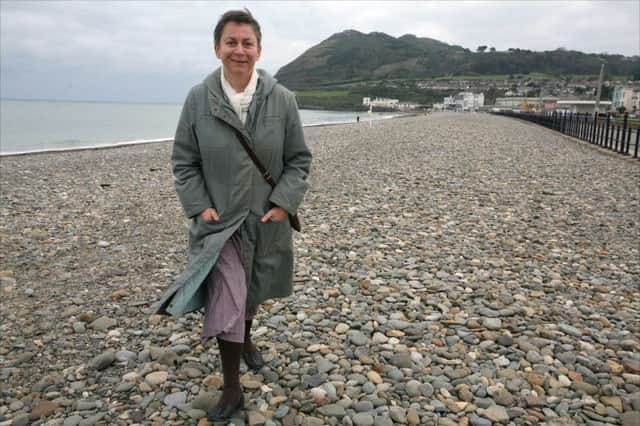Book review: The Green Road by Anne Enright


The Green Road
by Anne Enright
Jonathan Cape. 310pp. £17.99
Since this is Ireland in 1980 before the scandal of the abuse of children by priests and monks, her response may be surprising, for it was still then the wish of many Irish mothers that a son should enter the priesthood; but not Rosaleen. If Dan becomes a priest, he won’t be able to give her grandchildren; more significantly perhaps the Church will demand to be at the centre of his life – which is where Rosaleen wants to be. She is given to alternating between petting, even spoiling her children one moment, and ignoring or rebuking them the next. No one could call her ordinary or conventional. She dominates and infuriates them, and they can’t escape her, though all four – Constance, Dan, Emmet and Hanna – will seek different ways of trying to do so. Nevertheless all, at different times, are much concerned to please her; she has charm, intelligence and personality.
Dan is the first to get away, but not into the Church. The second, surprising section of the novel is set in New York in 1991, in the East Village, the heartland of the gay community, at the height, still, of the Aids epidemic. The shift in tone from County Clare and the stony little farm which Rosaleen’s husband had inherited, and where his mother still lives, peasant-style, is abrupt, unexpected and successful. There is a new narrative voice, though an unidentified one, that speaks from within the gay world, as “we”. Dan is to be found there, half-in and half-out. Commitment isn’t his thing. He has abandoned the priesthood, but not entirely his girlfriend from student days, even though he will soon be in bed with beautiful Billy. Refusal to commit is Dan’s way of escape, even rebellion.
Advertisement
Hide AdHis elder sister Constance takes the opposite course; escape into commitment to her husband and family, escape into ordinariness and practical cares. The third section sees her in 1997 in the outpatients’ department of Limerick Hospital; a lump has appeared on her breast. “She had three children and a husband to look after, not to mention her widowed mother. Constance did not have time for cancer.” Naturally she hasn’t told her mother about the mammogram, and she thinks her busy, rapidly-prospering builder husband, who is shy about such things, will have forgotten or chosen to forget her appointment. How splendidly true to life everything in this novel is.
Emmet’s escape is into aid work. 2002 finds him in Africa, with a girlfriend to who he can’t or won’t commit himself, and work in which he no longer fully believes. But it’s as far away from Rosaleen as he can get. As for the youngest, Hanna, a delightful child in 1980, she will become an actress, more often resting than working, and slipping into alcoholism. So they are all, one way or another, damaged people, even the sensible Constance whose husband prospers mightily as Ireland moves into the Celtic Tiger years when, at Christmas 2005, “a pub that, in their youth, smelt of wet wool and old men was now a gallery of scents, like walking through the perfume department in the Duty Free.”
For they have all come home for this Christmas, even Dan who has just agreed to marry his rich middle-aged lover Ludo in Toronto. They have come home because Rosaleen demands it and because she declares she is going to sell the big house where they grew up. It is the last throw of her dice, her last attempt to keep hold of them all. One way of doing so is to let it be known that each of them worries her. “It still got to them. Rosaleen never said it to your face, whatever it was. She moved instead around and behind her children in some churning state of mild and constant distraction. ‘I’m very worried about Hanna.’ It was her way of holding on to them, perhaps…” I like that “perhaps”. Enright recoils from the role of omniscient novelist, playing God – though of course like all good novelists she does indeed play God when it suits her.
When, On Christmas Day, after lunch, Rosaleen gets into her little Citroen and goes missing, the whole neighbourhood is roused to search for her. This too is just as it should be. She’s a nuisance but one they would be even more lost without.
Enright is a writer with a wonderful and enviable lightness of touch. She evokes landscape like an Impressionist painter and in doing so marries the scene she has created to the mood and perplexities of her characters. All are treated with a sympathy, a deep and perceptive sympathy that doesn’t preclude judgement.
Will the house be sold, closing off the past? Perhaps. But, if so, there could be no perfect new house for Rosaleen. “How could there be? Because Rosaleen was impossible to please. The world was queuing up to satisfy her, and the world always failed.”
This is a wholly delightful novel, and a wise one.